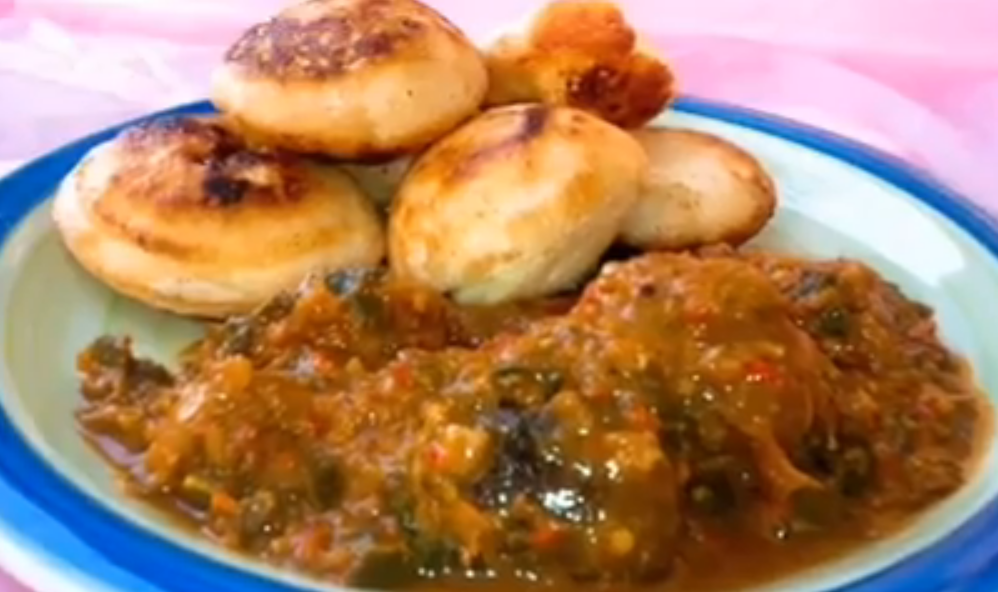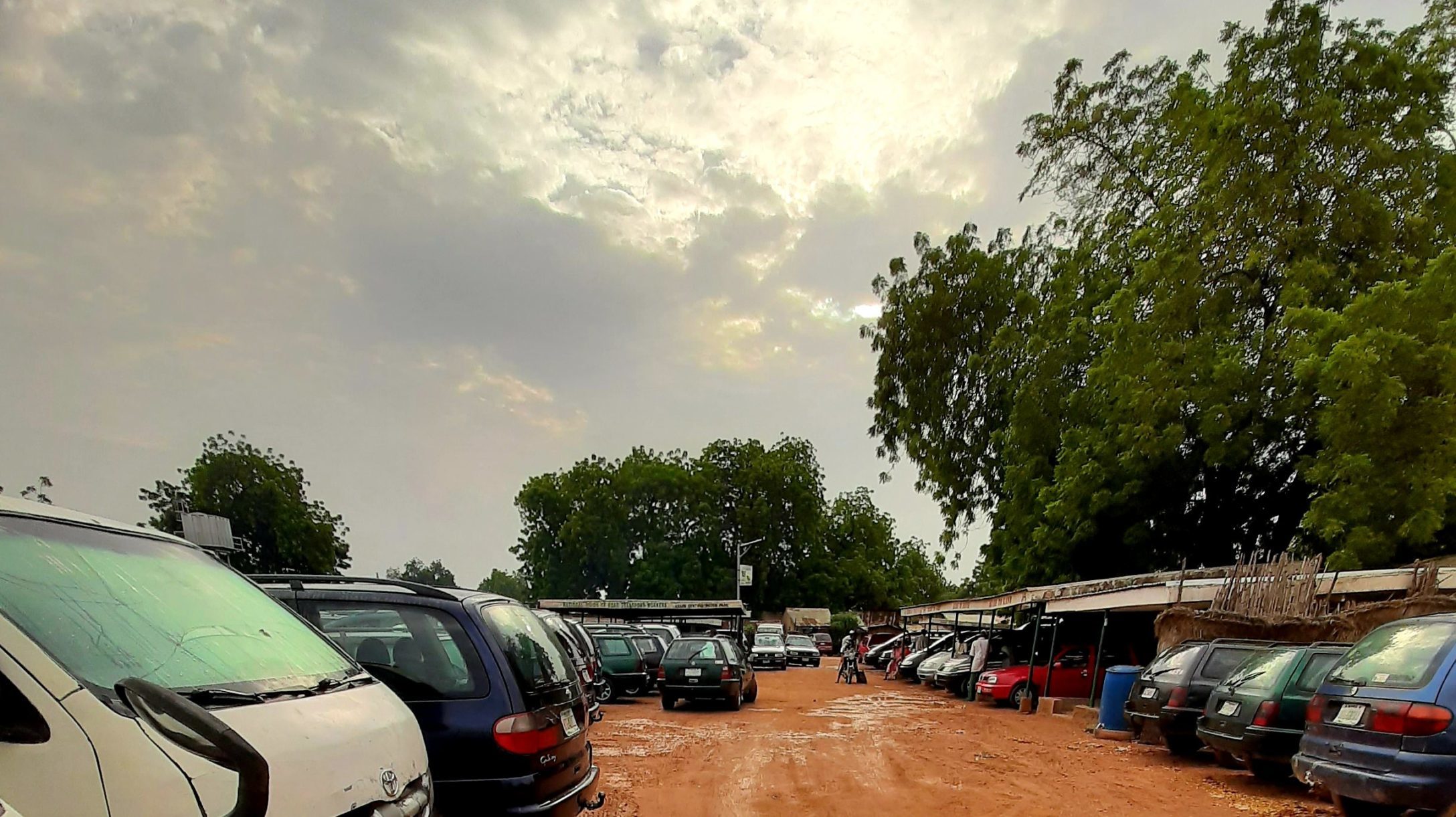On a recent visit to my sister and her family, I decided to take a day trip to Bauchi. On my way to the Kaduna Road I began daydreaming about the things I would do when I arrived, unwavering in my certainty that I’d get there: The masa in Bauchi is to die for, a slice of paradise swimming in a bowl of miyan taushe. Then there’s the woman at Gwallameji who does one of the best kunun aya I have ever tasted.

From where do we draw this never-ending assurance that if we will ourselves into an act, the requisite forces will have no choice but to pull together in our favour? What if, prior to the journey, the driver has pushed two wraps of weed through his lungs, and then falls asleep behind the wheel?
Being the last person on the car manifest, I slotted in next to a guy on the passenger seat in front. We were traveling in a Sienna. There were four people in the middle seat: two middle-aged women in red and blue geles. The one in blue was lapping a toddler. The other two were men, late middle-agers in flowing kaftans, one with a face peppered with liver spots and teeth reddened by years of grinding colanuts. The other had a coarse black spot at the base of his forehead that stood out against the chestnut color of his skin. I have been told this is the hallmark of those diligent in prayer. Behind them in the back seat were three young boys in razor-sharp caps and neatly pressed kaftans, giving them the air of newlywed grooms. In my flimsy black jeans and shirt, I felt the odd man out.
Umar, the guy next to me, was from Gombe. Prayer-beads in hand, he regaled me with tales of his travels and stolen luggages. We passed a group of uniformed soldiers, jogging and chanting in the heavy rain; they left me with the image of liquefied steel coursing through their veins. The woman in red gele spat a fireball, taking them to task: She would sooner die than see her son become a military orderly, slaving away for high ranking officers and their wives. Soon her tirade took an unsurprising turn to the political landscape in Nasarawa.
“Since we are all Muslims here,” the driver interjected, “we should speak freely.” I shifted in my seat, unable to pinpoint exactly why he thought I was a Muslim. Was it my face, my beard, my immaculate Hausa, or something else in my constitution?
I know the combustible political landscape in Nasarawa. I was there throughout the 2015 general elections. Nasarawa has been governed by Muslims since its inception, creating a longterm frustration among the non-Muslim/Eggon population. During the 2015 gubernatorial election, the non-Muslims/Eggons were determined to unseat Governor Tanko Al-Makura, labelling it “their turn” and “their appointed time.” And when their aspirations took a boot to the throat, 2019 presented a chance to try again.
Blessing was calling now. I paused, undecided whether or not to answer the phone. In my mind the whole of Nigeria was in this car. Pidgin English aside, I speak two separate Englishes. When I’m in the north, the slight lilt and drawl of my speech announces my belonging, and when I’m anywhere else my English is without texture. If I spoke in my textureless English, I risked identifying myself as an outsider to the other passengers—as a non-Muslim. But if I spoke in my lilted English, I risked giving Blessing the impression that some strange person had hijacked my phone. I hunched forward, and when I was sure the pattering of rain on the roof provided adequate cover, I told Blessing I’d call her back, in the lowest of voices. When I sat back up my oddities had disappeared. Nothing was sticking out. And I got the distinct feeling that somewhere, out in the universe, a weaver had just plugged in the last raffia twig before the basket set.
One of the boys in the back was first to set the stage. In the just-concluded 2019 election, he said, they had only voted for Engr. Abdullahi Sule because they could not afford to let the state’s mantle of leadership fall to either of his rivals, Mr. David Ombugadu of the PDP, or Mr. Labaran Maku of APGA, who are both of the Eggon ethnic group, and non-Muslims. Engr. Abdullahi Sule wasn’t the better choice, he conceded: a self-serving businessman, famed for his stinginess.
The driver completely agreed, and added: the victory celebration hadn’t gone cold yet when the newly elected governor went ahead and married himself a third wife. “We made a damn good choice in Nasarawa,” the woman with the toddler declared, as if in open rebuke. “Better an Abdullahi anytime than a Moses. A Christian will always be a Christian. Let it be that you suckled on the nipple of the same woman, they will never truly love or accept you.”
Because we are a people socialized to demonize otherness, to fear anything outside of ourselves, I imagined a group of Christians on a different day, travelling in a car like this one, the conversation almost taking this same trajectory from the opposite side:
“You didn’t hear what Pastor (insert any known pastor in Nasarawa) said? He prophesied that the man will die before the end of his first tenure in office, so that his Christian deputy can take over.”
“Truly, our God is wide-awake.”
“Oh yes! He will never stand by and let His people continue to be persecuted in Nasarawa.”
“Their islamization agenda will never stand. These Muslims and their born-to-rule attitude!”
When I think of Nigeria I have the image of a ship, sailing willy-nilly on the waves of time, heading straight for the rocks. The select few steering the ship have padded themselves for the eventuality of a collision, while their passengers, in their millions, are squabbling away, too hung up on the trivialities of ethnicity and religion to notice their own impending doom.
We dashed past undulating plains and velds, small villages with scatterings of houses that looked like straw hats in the hazy distance. Shadowy plants leaned into the road, and checkpoints sprouted, manned by po-faced soldiers in leather ponchos standing between low walls of camouflaged sandbags and tyres. Despite the signposts bravely announcing that IT IS AN OFFENSE TO GIVE MONEY HERE in Hausa and English, their faces lit up with the warmest of smiles as a vehicle approached. They made knee-jerk jokes with the driver, briefly establishing a false cordiality begging subtly for its own monetary reward.
“Of what use are these soldiers if they’re just going to be there while people constantly get robbed just a kilometer away?” said the driver, as we exited a checkpoint in Gidan Waya. There were not many cars coming in the opposite direction today. And as the fringy grasslands of Kaduna gave way to the mountainous scenery of Plateau, Governor Simon Lalong took center stage. I promptly declared that he is one son of a bitch, forgetting myself for the first time. Little grunts of indignation erupt in the car. A’uzu Billahi. But I ventured further, still oblivious, citing the governor’s total neglect for existing infrastructure and his zero commitment to building new ones since he took office in 2015.
“It is only the Christians who criticize Lalong this way because he will not do their bidding.” The rebuttal came from the liver-spotted man in the middle seat. “If for nothing else he has ensured peace in Plateau, and do you know how much he gave to Muslims during the Sallah period?” His voice bubbled with an amalgam of awe and incredulity. Obviously I had gone off-script. Some big detail that continued to elude me. It took me a minute before I recaptured myself, regaining that dexterity that had so far preserved my seat at this table. But by then, unfortunately, skepticism had begun to set in, and with it the materialization of a divide that might well widen into a rift.
The singularity of Governor Simon Lalong’s case is what I’d been missing.
The governor is a Christian, but one who chiefly identified with the Muslim population. While he is a kind of pariah to the Christians in the state, he is an adoptee of the Muslims. And boy, do they love their adopted son. And so to insist on my present line of argument would be an unspoken revelation of my true identity. If this were a movie, here was my chance to decide its resolution. A lot had been said since the beginning of this journey, unpretty things that could never be unsaid. A vacuum of awkwardness would suction the air out of this little space if I were to show myself. Words and eye movements would become painfully measured. I could not abide with that, so I decided to let the status quo prevail.
I was now plunged right into a fresh quagmire. Soon it would be time for a stop somewhere for early afternoon prayers. The passengers hinted at a stop in Magama, where there was a petrol station with a male and female mosque, plus an eatery and a cold store. To what lengths was I willing to go this time to keep my cover? I had only ever been in a mosque once, somewhere in Jigawa, beckoned inside by a group of friends to sleep for the night. And I had attempted ablution once as a starry-eyed teenager, madly in love with a girl who swore she would give me the whole world.
But thankfully this bind soon unraveled itself. In Magama, sweet relief came when the driver suggested we take a break only to empty our bladders, and pray instead in our destination, Bauchi. I was surprised when we all agreed. Everyone exited the car but me, and without a word the toddler was thrust into my Christian arms by her carefree mother, a dimpled bundle of sheer babbling delight. I held her delicately, as though to protect her from something I could not see, wondering if her mother would reach out and reclaim her if she suddenly knew.
Forty-seven minutes past two P.M., we approached the outskirts of Bauchi. The rain had eased into a sprinkle and the world was veiled in a gauze of mist. Having talked ourselves ragged, the car was silent now. In this vacant state all of my senses came alive. I heard the sibilant swishing of the wheels against the wet asphalt, the squeaking of the wipers, the toddler making faint sounds of happiness in her sleep. Cows roamed the roadside prairie, grazing under the watchful eyes of their swaggering teenage herders. Steam rose from the moss-covered mountaintop into the heavens, God’s own cup of tea. And as our journey ended I saw two young girls who had been hit by a bus, lying supine on the curb, covered with a spread of dogonyaro leaves. Knowing that their journey had already ended, I felt whole-body goosebumps the rest of the way.






